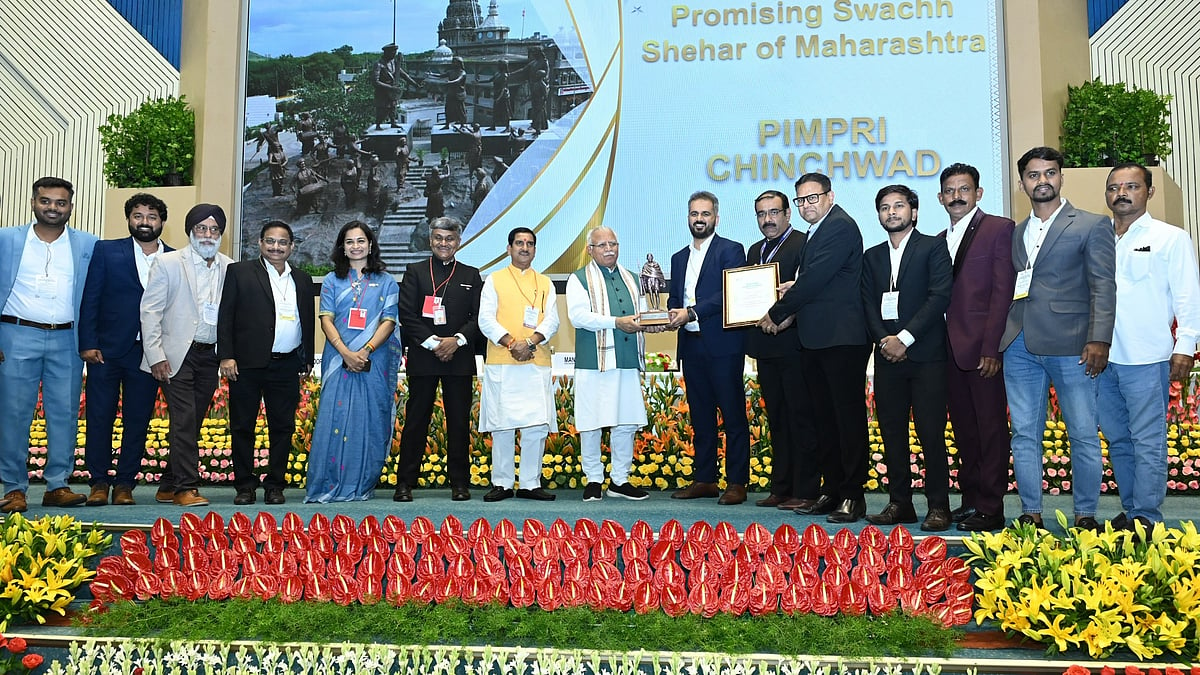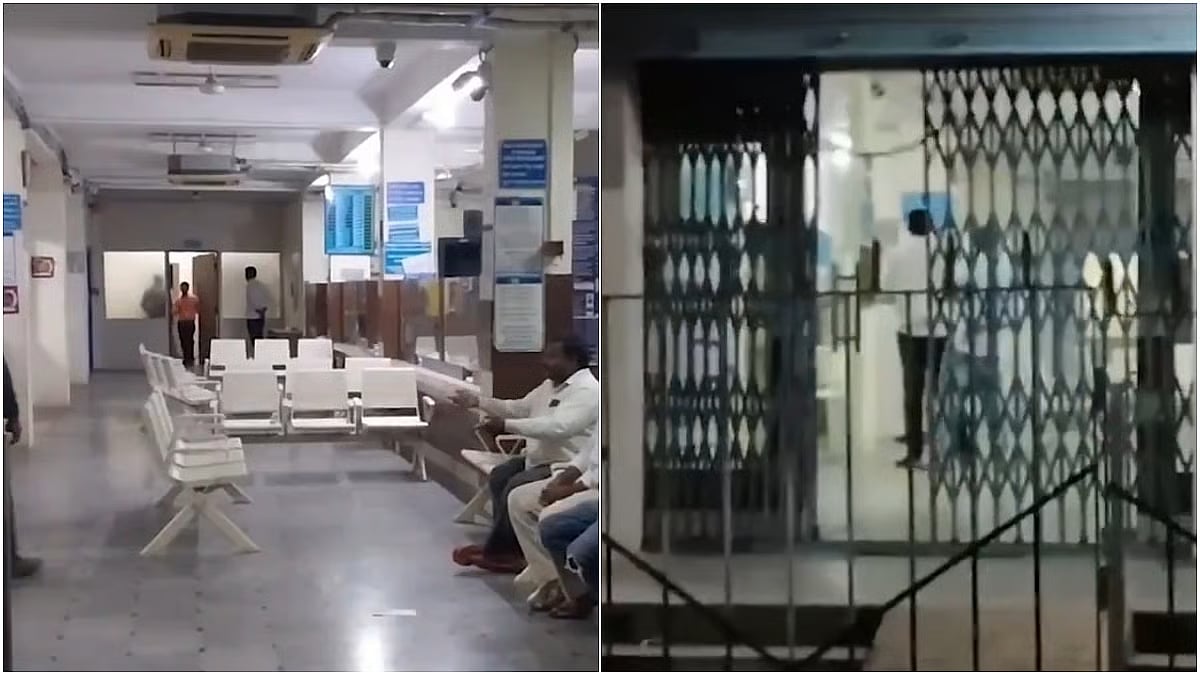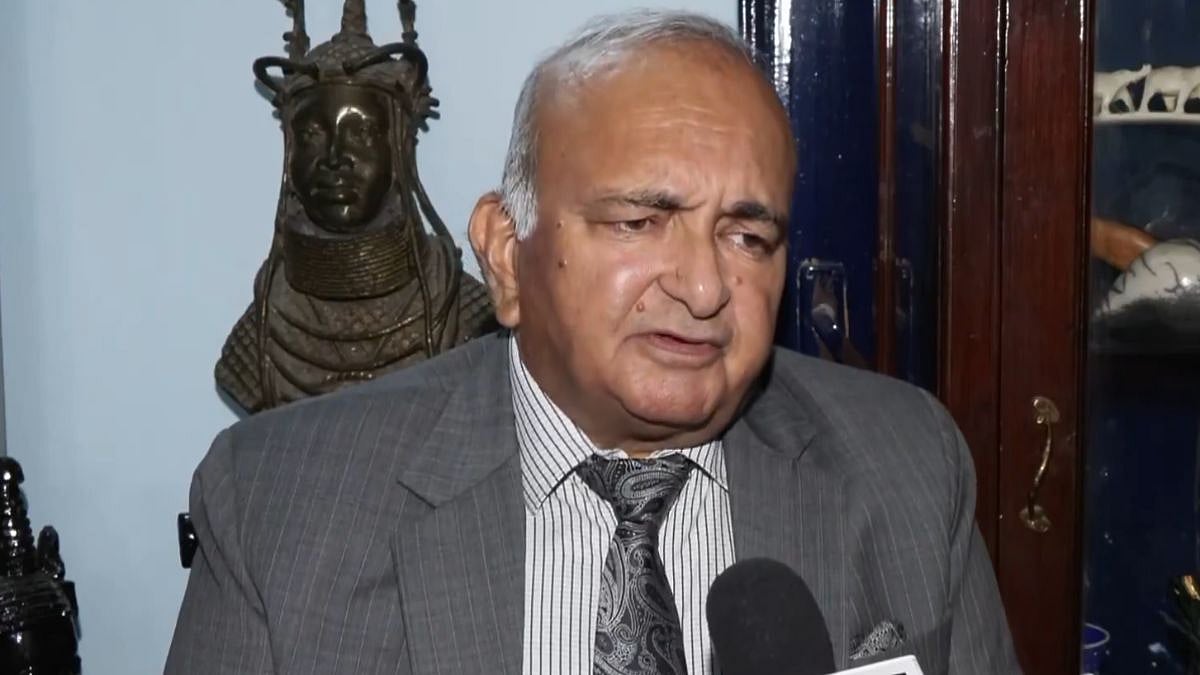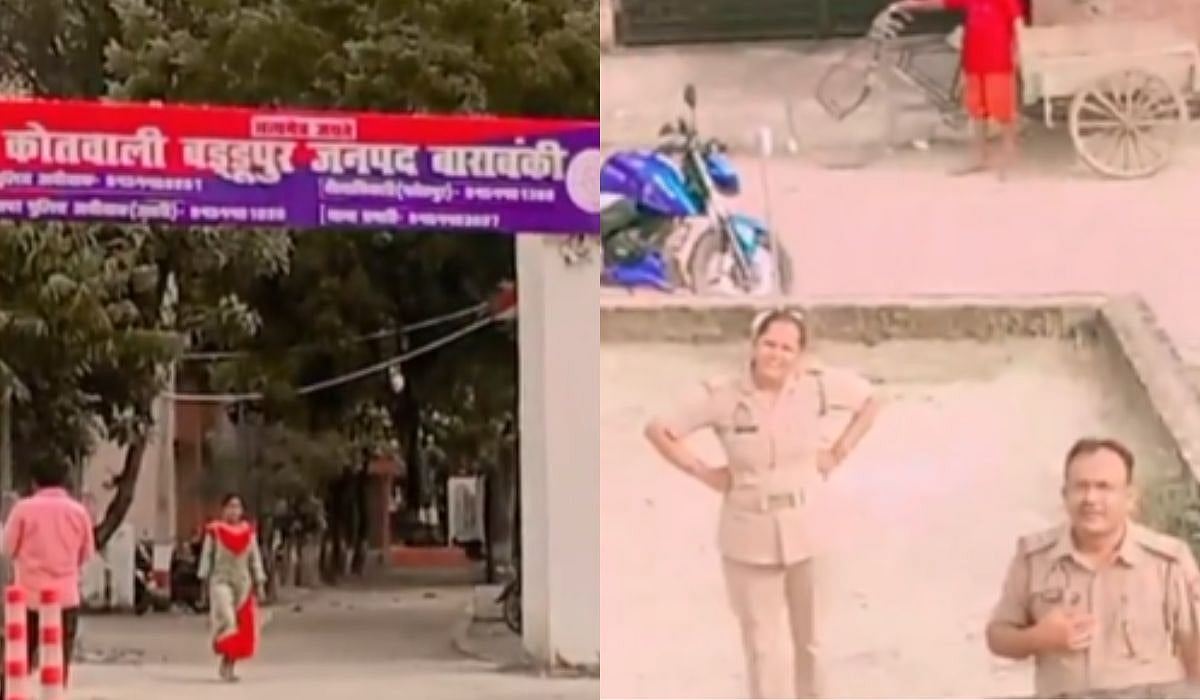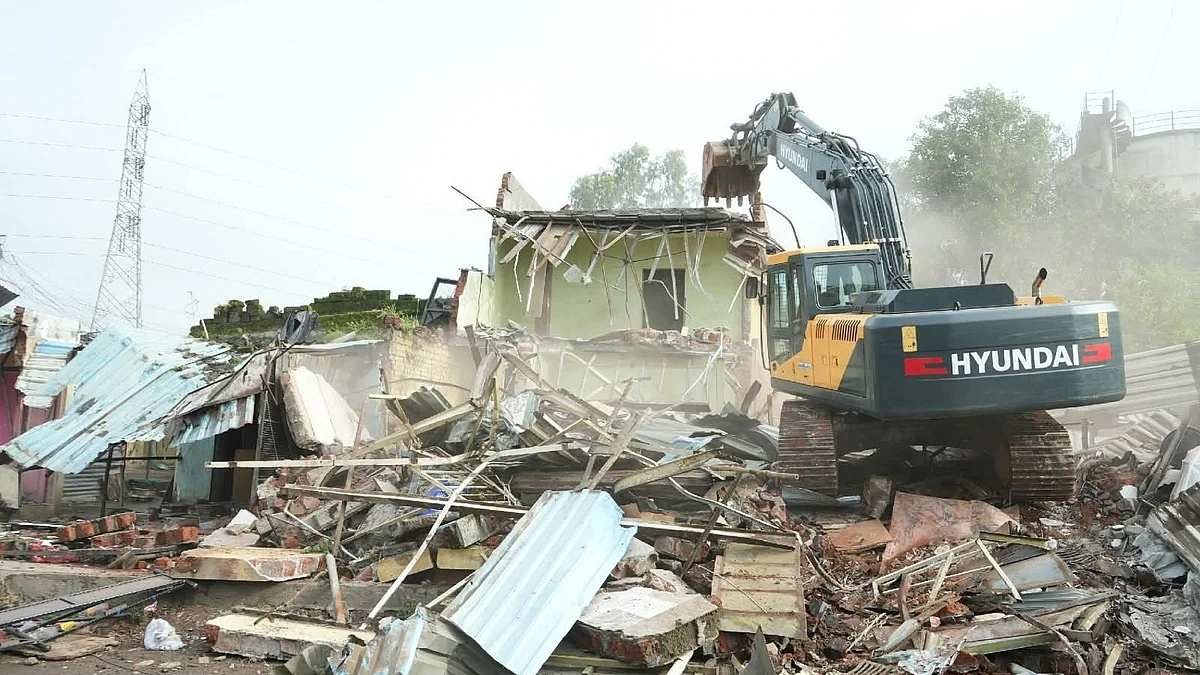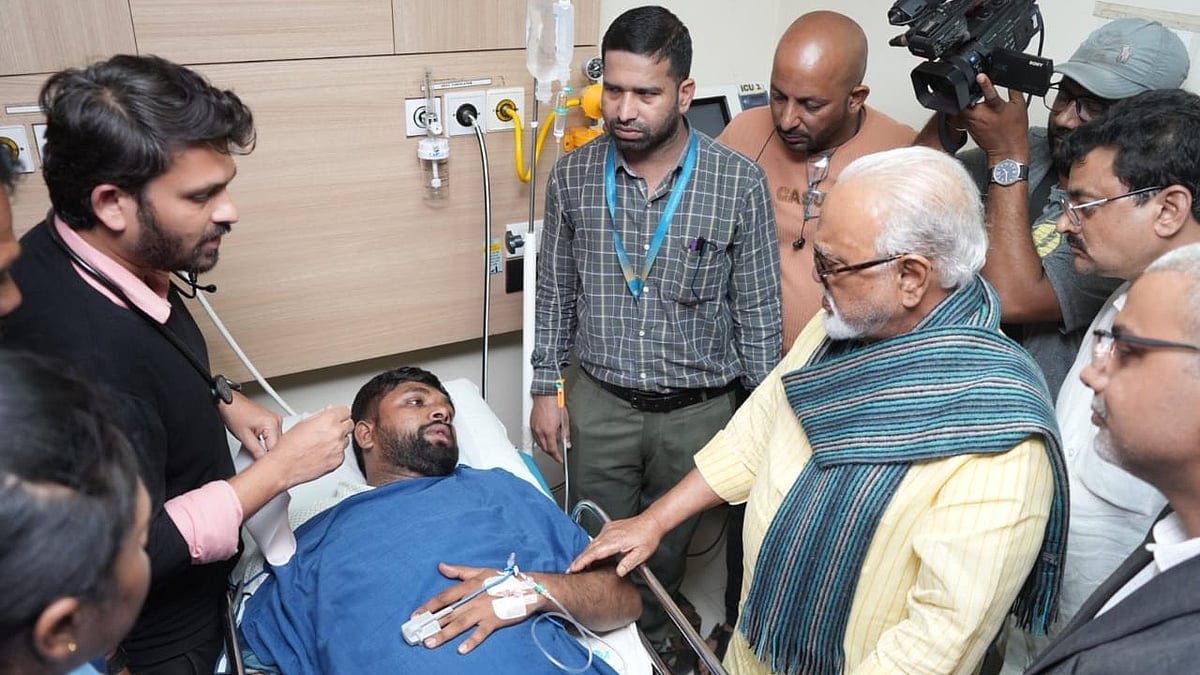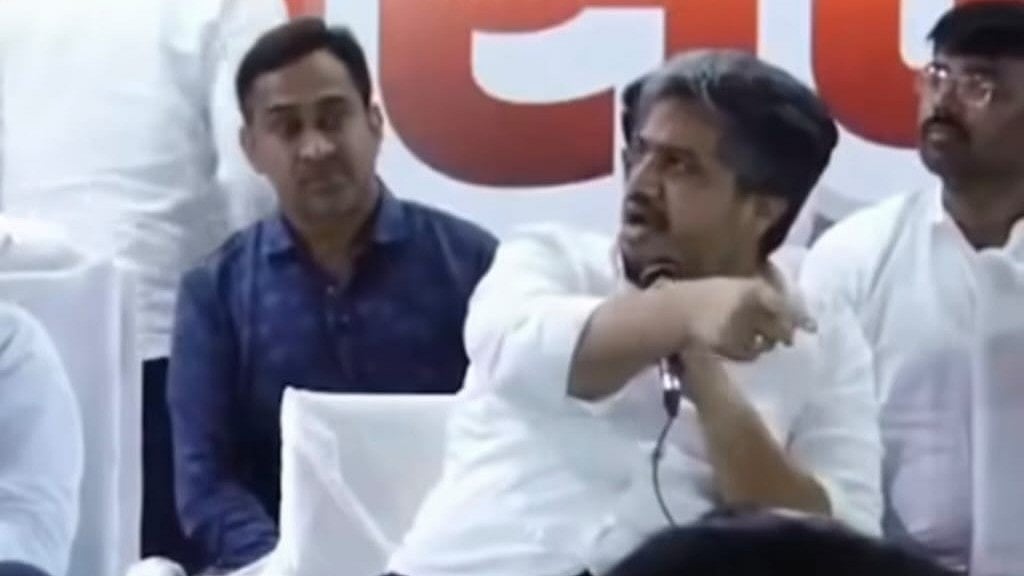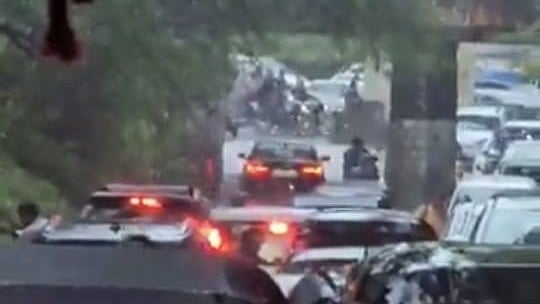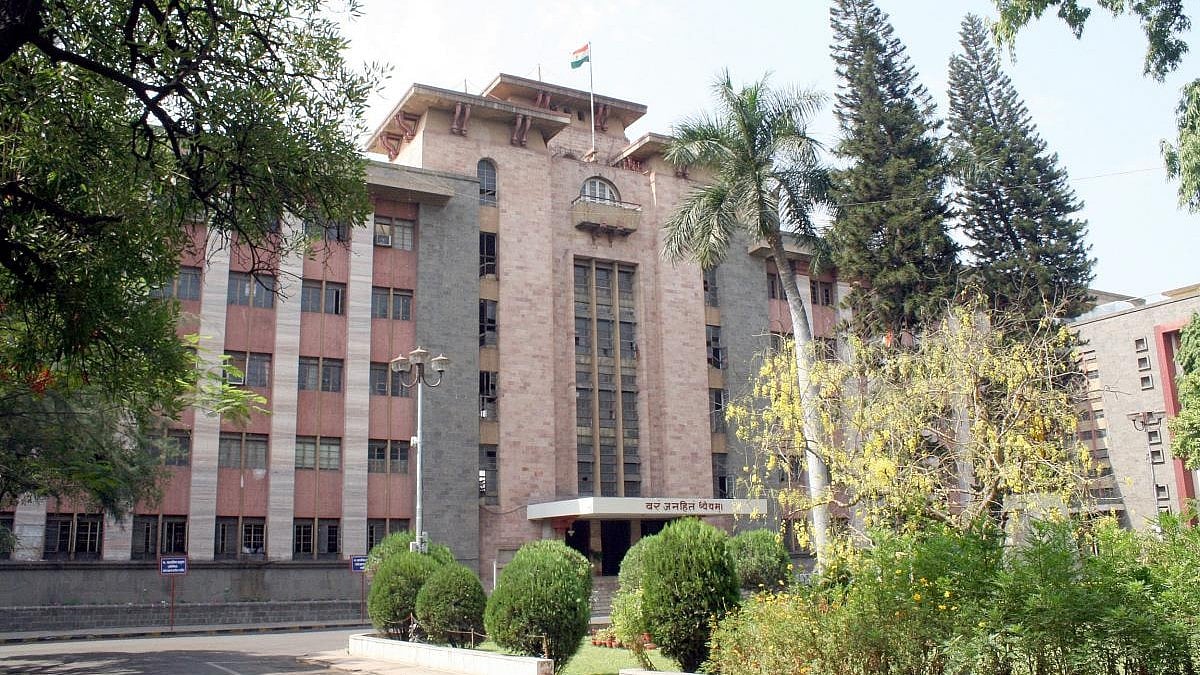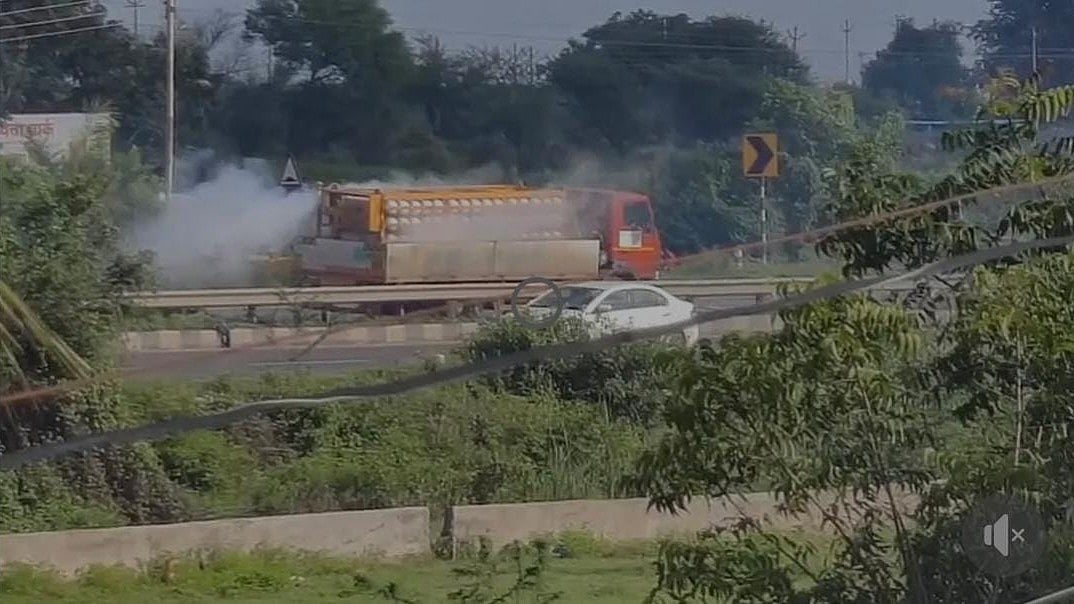Pimpri Chinchwad has once again proven itself as a leader in urban sanitation and public participation by securing the first rank in Maharashtra and an impressive 7th rank nationally among million-plus cities in the Swachh Survekshan 2024-25. In addition to the top rankings, the city has also retained two prestigious certifications – the 7-Star Garbage Free City rating and Water Plus status – awarded by the Ministry of Housing and Urban Affairs (MoHUA), Government of India.
At the award ceremony held in Delhi today, the award was received by Municipal Commissioner Shekhar Singh, Chief Engineer Sanjay Kulkarni, and Deputy commissioner Sachin Pawar at the hands of Union Minister for Urban Development Manohar Lal Khattar and Minister of State Tokhan Sahu. Also present on the occasion were Secretary Shrinivas Katikithala, Secretary Rupa Mishra, PCMC Executive Engineer Harvinder Singh Bansal, Health Executive Officer Ganesh Deshpande, and other officials.
The Swachh Survekshan survey, now in its 9th edition, covered over 4,500 cities and saw active participation from more than 14 crore citizens nationwide.
This marks a notable improvement for Pimpri Chinchwad, which ranked 13th nationally and 3rd in the state in last year’s assessment. The city's strong performance this year is a result of continuous improvements in solid waste management, citizen engagement, sanitation infrastructure, and technological integration.
One of the key highlights of PCMC’s achievement is its retention of the 7-Star Garbage Free City status under the Government of India’s certification framework. The city has implemented scientific solid waste processing at the source. Door-to-door segregated collection, composting units, recycling plants, and biogas facilities have contributed to this milestone.
The city has also once again earned the Water Plus certification, reflecting its 100% compliance with wastewater management, including the treatment and reuse of sewage water, protection of natural water bodies, and maintaining open defecation-free zones.
PCMC Commissioner Shekhar Singh said, “I sincerely congratulate every citizen, sanitation worker, official, and civil society group for this collective achievement. This recognition is a proof to Pimpri Chinchwad’s sustained and inclusive efforts. Our responsibility has now increased, and we will continue to launch more sustainable initiatives in the times ahead.”
Additional Commissioner Vijaykumar Khorate remarked, “The award is a proud moment for the city. Our next focus will be on zero waste policies, sustainable sanitation, water reuse, and building an environmentally responsible urban ecosystem.”
Deputy Commissioner (Health), Sachin Pawar added, “This recognition is the result of relentless teamwork by the health department and support from citizens. We are determined to work even harder and aim to bring Pimpri Chinchwad to the top national position in the next survey.”
The 2024-25 survey placed strong emphasis on themes like Reduce, Reuse, Recycle, and encouraged the use of digital tools for real-time monitoring and public feedback. Assessments were based on 10 parameters and 54 indicators covering cleanliness, waste processing, public toilet maintenance, water treatment, citizen outreach, and innovation.
PCMC credits this achievement to the active role played by residents, schools, NGOs, housing societies, and industries who contributed through consistent waste segregation, reduced plastic use, and promotion of public hygiene.
Year-wise Improvement in National Rankings
Pimpri Chinchwad’s journey in Swachh Survekshan has shown a consistent rise in performance:
2016 – Rank 9
2017 – Rank 72
2018 – Rank 43
2019 – Rank 52
2020 – Rank 24
2021 – Rank 19
2022 – Rank 19
2023 – Rank 10
2024 – Rank 13
2025 – Rank 7
How PCMC Achieved This Milestone
The success is attributed to a combination of policy, technology, and people-centric execution:
Ward-Level Microplanning: Targeted interventions for cleanliness, backed by real-time monitoring.
Door-to-Door Segregated Waste Collection: 100% segregation at source implemented across all wards.
Scientific Waste Processing: City-wide deployment of composting units, material recovery facilities, biogas plants and RDF units.
Sewage & Water Reuse: Efficient STP functioning and 100% reuse of treated wastewater for non-potable purposes.
Massive Citizen Engagement: Participation by housing societies, industries, NGOs, schools, and RWAs made cleanliness a civic movement.
